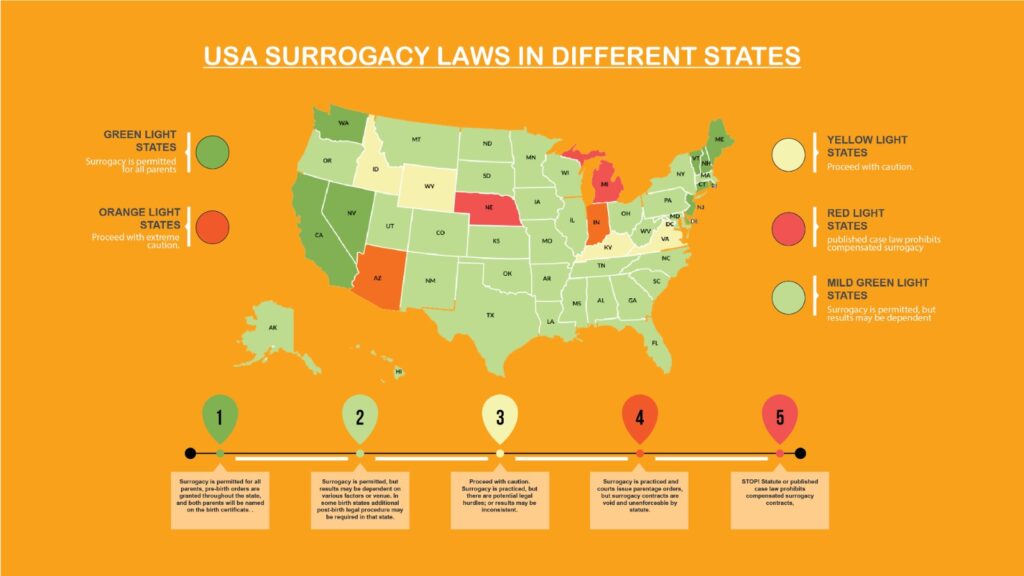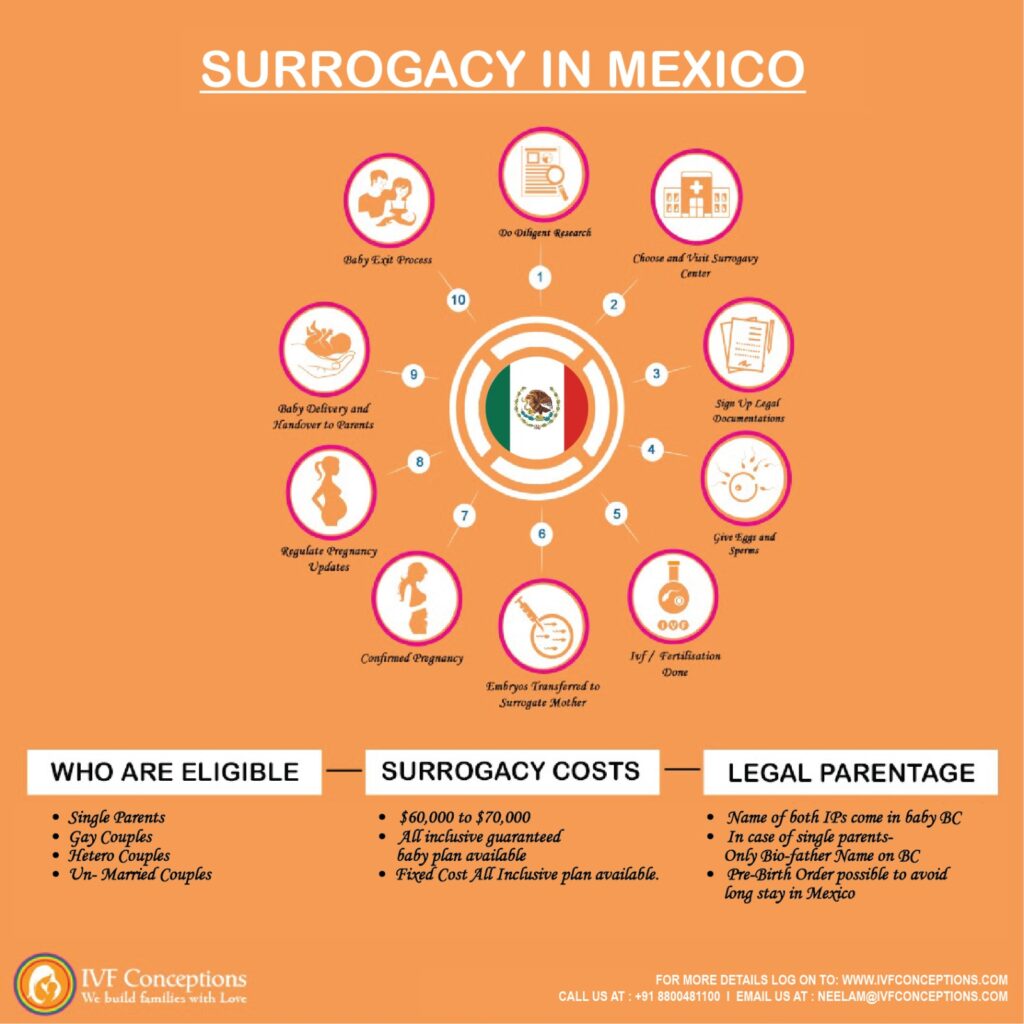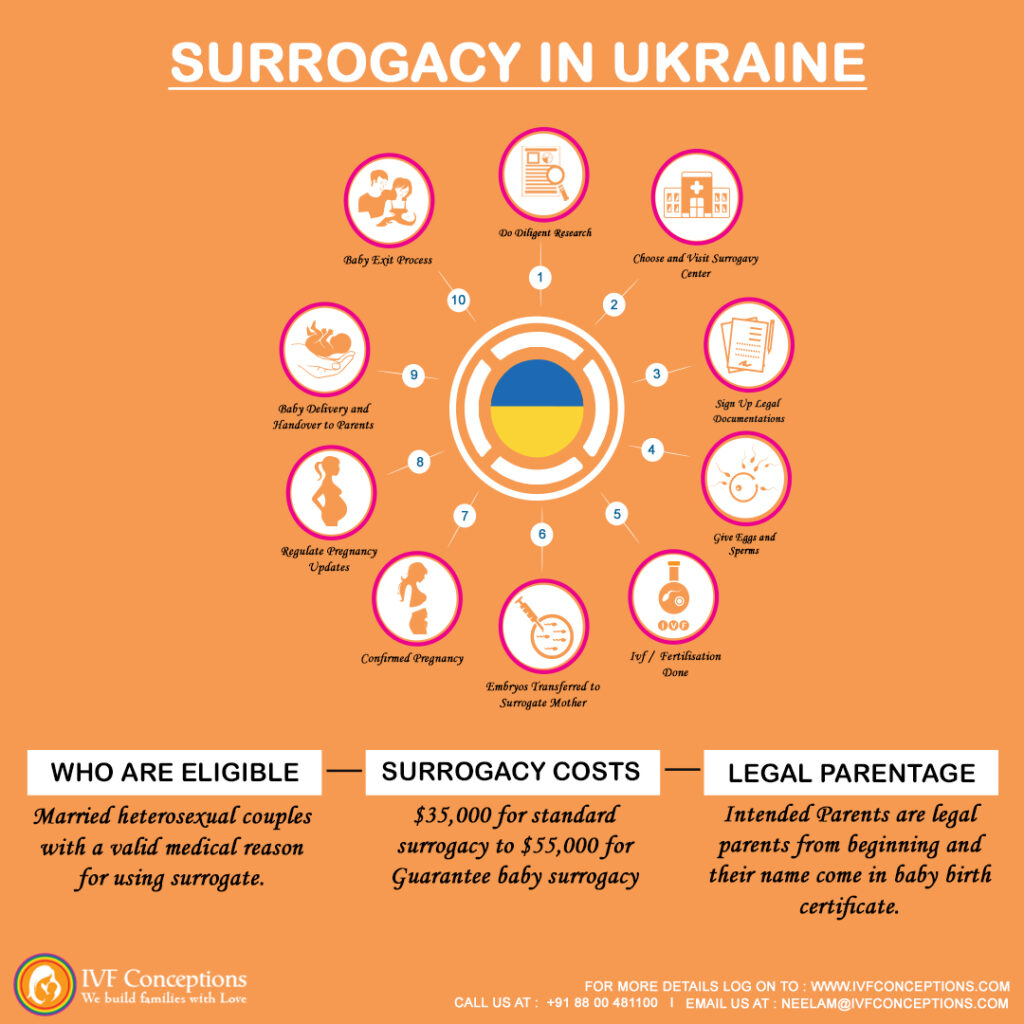Surrogacy in Montana: A Guide for Intended Parents and Gestational Carriers

Embarking on surrogacy in Montana can be a profoundly rewarding journey. The process is simplified when working with a reputable surrogacy agency. Given Montana’s lack of specific surrogacy legislation, gestational surrogacy is permissible. Yet, intended parents must attend a post-birth hearing to legally establish their parental rights.
For those interested in becoming a surrogate in Montana, we provide comprehensive information. In gestational surrogacy, the surrogate is not biologically related to the child. The embryo is created through in vitro fertilization using the intended parents’ gametes or donor gametes chosen by the intended parents.
Get in touch for a Free Surrogacy Consultancy:
📲 91-8800481100 ( WhatsApp, Line, Viber)
Despite the absence of surrogacy laws, the practice is legal and accepted in Montana. Engaging with a local surrogacy attorney is crucial to understand the legalities involved. A surrogacy agency can recommend a lawyer to protect your rights and interests throughout the process.
This guide aims to illuminate the key aspects of gestational surrogacy in Montana. It equips you with the knowledge to make informed decisions. Topics covered include Montana’s surrogacy laws, the process of finding a surrogate or intended parents, legal considerations, and estimated costs.
Additional guide for intended parents:
Why Choose Montana for Surrogacy?
Montana offers unique advantages for intended parents seeking surrogacy:
- Affordable Costs: Compared to states with higher surrogacy demand, the surrogacy cost in Montana is relatively more affordable.
- Personalized Services: Local agencies and clinics provide more tailored support due to lower client volumes.
- Natural Environment: Montana’s serene surroundings offer a stress-free environment for surrogates and intended parents during key stages of the process.
Key Takeaways:
The journey of a Montana gestational surrogacy typically involves several key steps:
- The intended parents and surrogate find and screen each other with the help of a surrogacy agency
- Both parties obtain legal advice from surrogacy attorneys before finalizing a surrogacy contract
- Creating embryos via IVF using the intended parents’ or donors’ eggs and sperm
- Transferring the embryo(s) into the gestational carrier
- Obtaining a pre-birth parentage order to establish intended parents as the legal parents
- The surrogate gives birth and hands over the baby to the intended parents
This journey is complex, involving medical, emotional, financial, and legal aspects. Yet, many Montana surrogacies have successfully led to the joy of parenthood for intended parents.

Gestational Surrogacy In Montana- An Overview
Surrogacy in Montana offers a secure legal framework for starting a family. Montana, despite lacking specific surrogacy laws, generally supports third-party reproduction.
Pre-birth orders (PBOs) are frequently granted by Montana judges before birth. These orders establish parents’ legal rights and allow them to be listed on the child’s birth certificate without difficulty.
Montana, known as “Big Sky Country,” is renowned for its natural beauty and vast wilderness. It boasts at least four cities with Level III NICUs and one IVF center.
In Montana, there are no laws restricting a surrogate’s compensation for her services. Traditional surrogacy is also legal. Yet, to confirm the intended parents’ legal rights, a post-birth hearing or adoption may be required by Montana courts.
Parentage order procedures in Montana vary based on the presiding judge and court. Courts typically grant pre-birth parentage orders to those with a genetic connection to the child, including married, unmarried couples, and individuals.
For those without a genetic connection, orders are decided on a case-by-case basis. Montana offers more legal protection for planned married parents. The legitimacy of joint petitions for unmarried intended parents may be questioned by courts.
Surrogacy Laws In Montana
Montana does not have specific laws governing surrogacy. However, courts in the state have generally recognized gestational surrogacy agreements, provided all parties are represented by legal counsel. It is essential to work with an experienced surrogacy attorney to draft enforceable contracts and ensure parental rights are established post-birth.

Is Surrogacy Legal in Montana?
Despite the absence of specific surrogacy laws in Montana, the practice is deemed legal. There is no precedent case law that prohibits or enforces surrogacy agreements. Given the legal ambiguity surrounding traditional surrogacy, where the surrogate uses her own egg, gestational surrogacy is advised.
Gestational surrogacy ensures the surrogate has no genetic link to the fetus. This approach circumvents potential disputes over parental rights that could arise if the surrogate uses her own egg.
Key Legal Considerations for Montana Gestational Surrogacy
Given Montana’s lack of statutes directly addressing surrogacy, it is prudent for all parties to implement measures to safeguard parental rights and prevent potential conflicts. Essential legal precautions include:
Surrogacy contract: A comprehensive gestational surrogacy agreement outlines expectations regarding procedures, expenses, and parenting rights. It should be executed before embryo transfer.
Separate legal counsel: It is advisable for all parties to seek counsel from experienced surrogacy attorneys. This ensures a thorough understanding of their rights and responsibilities, fostering informed consent.
Pre-birth parentage order: Intended parents can secure a court order confirming their legal parenthood at birth. This measure enhances certainty regarding parental rights.
Post-birth hearing: Though less common, courts may necessitate a post-delivery hearing to finalize parentage and issue a birth certificate with the intended parents’ names.
Engaging with seasoned surrogacy professionals is invaluable for navigating this intricate process and mitigating legal risks specific to Montana.
Pre-Birth Orders in Montana
Montana’s legal system supports and recognizes pre-birth orders for surrogacy involving genetically related intended parents. This accelerates the process, allowing intended parents to establish legal parental rights before the child’s birth.
Pre-birth orders provide a sense of security for all involved. They ensure that expectant parents can welcome their child with confidence, knowing their responsibilities are legally recognized. Surrogates, too, can proceed with peace of mind, knowing their role is acknowledged and respected.
Montana Surrogacy Laws/Surrogacy Contracts In Montana
The surrogacy contract is a pivotal element in the surrogacy journey. It outlines the rights, obligations, and expectations of both the intended parents and the surrogate. Topics covered include financial arrangements, healthcare decisions, and more.
A well-drafted surrogacy contract is essential for a smooth process. Our team at American Surrogacy collaborates closely with knowledgeable attorneys to ensure comprehensive coverage in the contract.
How Much Does Surrogacy Cost In Montana?
Surrogacy offers a pathway to parenthood for many individuals and couples who cannot conceive naturally. While Montana does not have explicit laws governing surrogacy, gestational surrogacy arrangements are possible with proper legal guidance.
The cost of surrogacy in Montana typically ranges between $90,000 and $140,000, depending on the unique needs of the intended parents and the surrogate.

Surrogacy Cost Breakdown in Montana
The following provides a detailed breakdown of typical surrogacy costs in Montana:
- Agency Fees: Surrogacy agencies charge between $15,000 and $30,000 for services like matching intended parents with a surrogate, case management, and support throughout the process.
- Surrogate Compensation: The surrogate is compensated for her time, effort, and the physical demands of pregnancy, with fees ranging from $35,000 to $50,000. Additional reimbursements for travel, maternity clothing, or medical procedures may apply.
- Medical Costs: Medical expenses, including IVF, embryo transfer, and prenatal care, range from $30,000 to $50,000, depending on the fertility clinic and the number of required cycles.
- Legal Fees: Drafting contracts, reviewing agreements, and securing parental rights cost $8,000 to $15,000, especially given Montana’s lack of specific surrogacy statutes.
- Miscellaneous Expenses: Travel, insurance, and unforeseen costs can add an extra $5,000 to $10,000.
Average Surrogacy Cost in Montana
| Cost Component | Estimated Range (USD) |
| Agency Fees | $15,000 – $30,000 |
| Surrogate Compensation | $35,000 – $50,000 |
| Medical Expenses | $30,000 – $50,000 |
| Legal Fees | $8,000 – $15,000 |
| Miscellaneous Costs | $5,000 – $10,000 |
| Total Estimated Cost | $90,000 – $140,000 |
Key Factors Affecting Surrogacy Costs in Montana
Several factors influence the surrogate Price in Montana, such as:
- Experience of the Surrogate: Experienced surrogates often command higher compensation compared to first-time surrogates.
- Health Insurance: If the surrogate’s existing health insurance does not cover surrogacy-related maternity care, intended parents may need to purchase an additional plan, increasing costs.
- Number of IVF Cycles: The number of required IVF attempts and related procedures like embryo freezing or PGT (Preimplantation Genetic Testing) impacts medical expenses.
- Legal Complexity: Navigating Montana’s legal landscape can require additional attorney consultations, especially in the absence of explicit surrogacy statutes.
Tips for Reducing Surrogacy Costs in Montana
Managing the Price of surrogacy in Montana requires careful planning. Here are some cost-saving tips:
- Work with Local Professionals: Partnering with local agencies and clinics can help minimize travel expenses.
- Insurance Planning: Ensure the surrogate has adequate health insurance or budget for a supplemental plan early in the process.
- Frozen Embryos: If you already have frozen embryos, you can save on egg retrieval and fertilization costs.
- Compare Agencies: Research multiple surrogacy agencies to find one that offers competitive fees without compromising on quality.
Cost-Saving Strategies Table
| Strategy | Potential Savings (USD) |
| Using a local surrogate | $5,000 – $10,000 |
| Partnering with a family member | $35,000 – $50,000 (compensation) |
| Ensuring adequate insurance | $10,000 – $20,000 |
| Selecting nearby clinics | $5,000 – $15,000 |
The cost of surrogacy in Montana typically ranges from $90,000 to $140,000, covering agency fees, surrogate compensation, medical treatments, legal services, and other essential expenses. While Montana lacks specific surrogacy laws, working with reputable professionals ensures a smooth journey to parenthood.
Surrogacy Process In Montana For Intended Parents
Deciding to pursue surrogacy is a monumental step towards realizing your parenting dreams. If you’re considering becoming a surrogate in Montana, you’re about to embark on a transformative journey.
The surrogacy process takes 18 months to 24 months depending upon the individual circumstances
Outlines the surrogacy process timeline for intended parents:
| Stage | Description of Stage | Duration |
| Research Phase | Explore family building options and decide on surrogacy. | Personal timeframe |
| Consultation and Application | Choose a surrogacy agency, sign agreement, and start embryo creation (if needed). | 1-3 Months |
| Matching | Agency finds and presents potential gestational carriers. Meet and decide on a match. | 3-6 Months |
| Medical Screening and Contracts | Carrier undergoes medical and psychological screening. Sign surrogacy contract. | 1-2 Months |
| Embryo Transfer | Prepare for embryo transfer. Success may take multiple attempts. | 1-1.5 Months |
| Pregnancy | Gestational carrier’s pregnancy, approximately 40 weeks. | 9-10 Months |
| Birth and Postpartum | Baby’s birth, establish parental rights, and postpartum period. | 1.5-3 Months |
Please keep in mind that the durations mentioned in the table are approximate and can vary depending on individual circumstances and other factors. Always consult with a reputable surrogacy agency or professional to get personalized guidance throughout the surrogacy journey.

While each surrogacy journey is unique, there are common steps in Montana:
STEP 1: CHOOSE IF SURROGACY IN MONTANA IS RIGHT OPTION FOR YOU.
STEP 2: WITH YOUR CHOSEN SURROGACY PROFESSIONAL, FORM A SURROGACY PLAN
STEP 3: COMPLETE THE PRE-SURROGACY SCREENING
STEP 4: FIND THE RIGHT SURROGATE FOR YOUR SURROGACY PROCEDURE
STEP 5: MAKE A SURROGACY AGREEMENT
STEP 6: COMPLETE THE MEDICAL PROCESS AND EMBRYO TRANSFER
STEP 7: WELCOME YOUR BABY AND COMPLETE THE PROCESS OF SURROGACY IN MONTANA.
Find Surrogate Mother In Montana
A surrogate mother is a woman who carries and gives birth to a child for another person or couple. The process of finding a surrogate mother is meticulous and thoughtful. Below are some common methods:
Given the rarity of surrogacy in Montana, finding a gestational carrier or intended parents often requires specialized agencies. Some notable options include:
Surrogacy agencies: Nationwide agencies like Circle Surrogacy and Conceive abilities can match intended parents with screened surrogates nationally, including potential carriers living in Montana open to working locally.
Regional fertility clinics: Clinics like the Northwest Fertility Institute have some surrogacy experience and may know women interested in serving as gestational carriers for intended parents matched at their clinic.
Online matching platforms: Websites like Surrogate.com allow intended parents and potential surrogates to connect directly after browsing online profiles. Legal protections may be lacking without agency involvement.
Working with a reputable surrogacy agency often provides the most assurance. Agencies handle screening, matching, guiding medical procedures, coordinating legal paperwork, and facilitating communications between parties at each phase.
Becoming a Surrogate in Montana – Requirements and Compensation
Women interested in surrogacy undergo medical and psychological screening. This confirms they meet key criteria. To become a surrogate, several requirements must be met:
- Age between 21 and 45 years old
- Having had at least one child already
- Being done growing your own family
- Having a healthy BMI
- Passing background checks
- No history of serious medical complications during pregnancy
First-time surrogates in Montana can earn around $35,000 for an uncomplicated pregnancy and delivery. Payments are made in installments, with the majority after a successful birth.
Experienced gestational carriers may earn more, up to $40,000 to $50,000. This is due to their proven reliability.
Why Consider Montana for Surrogacy?
Montana offers several benefits for those considering surrogacy:
Shorter Waiting Times – With fewer intended parents seeking local carriers, finding a match is quicker.
Personal Relationships – Montana’s smaller size promotes closer bonds between all parties, unlike big-city arrangements.
Lower Costs – IVF treatments and procedures are often less expensive locally compared to other US regions.
Supportive Courts – Montana courts generally favor enforcing surrogacy agreements between willing participants.
Nature & Recreation – Surrogate carriers can enjoy Montana’s natural beauty and outdoor activities during pregnancy.
Interest in surrogacy in Montana is growing. More intended parents are seeking carriers nationally, with good outcomes.
Top Affordable Surrogacy Destinations- Cheapest Countries for Surrogacy
Below is a look at some of the most cost-effective international surrogacy destinations, including their processes, costs, legal frameworks, and eligibility criteria.
1. Surrogacy in Mexico
- Process: Surrogacy is largely unregulated except in certain states like Tabasco. Surrogacy arrangements are conducted through private agreements with clinics.
- Cost: $60,000–$80,000
- Legal Framework: Only available for heterosexual married couples or single parents in certain states.
- Eligibility: Requires legal contracts; intended parents must work with experienced lawyers to ensure enforceability.

2. Surrogacy in Colombia
- Process: Altruistic surrogacy is allowed, with a focus on legally binding contracts. IVF treatments are accessible at reasonable rates.
- Cost: $60,000–$70,000
- Legal Framework: Open to heterosexual couples and single parents.
- Eligibility: No citizenship requirements; contracts must be reviewed to ensure compliance with Colombian law.
3. Surrogacy in Georgia (country)
- Process: Georgia has well-established surrogacy laws, and agreements are legally binding.
- Cost: $50,000–$70,000
- Legal Framework: Available only to heterosexual married couples. Parental rights are granted exclusively to the intended parents.
- Eligibility: Requires marriage certificates with at least one year of partnership.
4. Surrogacy in Ukraine
- Process: One of the most popular destinations before the geopolitical crisis, offering transparent processes and strong legal protections.
- Cost: $50,000–$70,000
- Legal Framework: Only heterosexual married couples are allowed. Surrogates have no parental rights.
- Eligibility: Only married hetero couples with proof of medical need are required.

5. Surrogacy in Armenia
- Process: Armenia’s surrogacy laws provide legal certainty, making it a growing destination for intended parents.
- Cost: $50,000–$70,000
- Legal Framework: Open to heterosexual married couples.
- Eligibility: Requires couple to be married hetero and age limit for female partner is 53.
6. Surrogacy in Argentina
- Process: Altruistic surrogacy is practiced, but contracts are not legally enforceable. Families work closely with surrogates and clinics.
- Cost: $50,000–$70,000
- Legal Framework: No specific laws on surrogacy, but recognized through family law. Open to all family types, including LGBTQ+ couples.
- Eligibility: Collaboration with legal experts is crucial to navigating the informal framework.
7. Surrogacy in India
- Process: India recently reopened surrogacy to Indian citizens only, with a focus on altruistic arrangements.
- Cost: $25,000–$40,000
- Legal Framework: Available only to heterosexual married Indian couples/ Surrogacy in India for NRI and Surrogacy in India for OCI is possible if thy fulfill all other conditios; commercial surrogacy is banned.
- Eligibility: Couples with citizenship of India/ NRI/ OCI card holder and medical need documentation are mandatory.
Comparative Table: Surrogacy Costs in the USA and Surrogacy Abroad Countries
| Country | Cost Range | Legal Framework | Eligibility Criteria | Key Feature |
| USA | $120,000–$200,000 | Fully regulated, binding | Open to all family types | High-quality medical and legal services |
| Mexico | $60,000–$80,000 | Semi-regulated, binding in parts | Heterosexual married couples, singles | Lower costs and proximity for Americans |
| Colombia | $50,000–$70,000 | Binding legal contracts | Open to heterosexual couples, singles | Affordable and accessible IVF treatments |
| Georgia | $40,000–$60,000 | Strict legal framework | Heterosexual married couples | Strong legal protection |
| Ukraine | $40,000–$70,000 | Strict legal framework | Heterosexual married couples | Transparent and reliable processes |
| Armenia | $50,000–$70,000 | Strong legal protections | Heterosexual married couples | Growing popularity with legal certainty |
| Argentina | $40,000–$60,000 | Informal, family law-based | Open to all family types | LGBTQ+ friendly with affordable options |
| India | $25,000–$40,000 | Strict, altruistic only | Indian citizens only | Most affordable option for eligible parents |
Looking for Best Surrogacy clinic / Surrogacy agency abroad?
We are here to help with more than 15 years of experience in offering safe, reliable, and affordable surrogacy options globally.
We analyze your needs, budget planning, egg donor availability, and destination preferences with the legal framework and find top surrogacy countries and agencies for you!
Our consulting services are free of cost and do not affect your costs in any way but help you to save tons of research time and money.
Additional guide for intended parents:
Gestational Surrogacy in Indiana
Gestational Surrogacy In Illinois
Gestational Surrogacy In Wisconsin
Conclusion
Surrogacy in Montana is a fulfilling and meaningful experience. IVF Conceptions ensures efficiency, compassion, and trust throughout your journey. You can bring joy to your children as their intended parents.
For personalized legal advice or to review your path to parenthood through surrogacy in Montana, consult a qualified surrogacy attorney. They can answer your questions and review options based on your family’s unique situation.
Our Complete Surrogacy Consulting Services /Case Management cover a wide range of services globally, including:
✓ Guide and Support to choose the secure and legal surrogacy program
✓ Surrogacy clinic and agency recommendations
✓ Legal support and referrals
✓ Logistic support/planning
✓ Surrogacy agency liaison
✓ Financial planning/financial aids
✓ Citizenship and passport assistance
✓ Case management
✓ Shipment assistance
✓ Collaborations with third-party support (if you have your own clinic/agency to make sure your program is done properly)
✓ Quick and transparent communication
At COMPLETE SURROGACY our goal is to ensure a affordable, reliable, smooth and supportive experience as you start this remarkable journey towards parenthood. If there are any specific questions, concerns, or details you’d like to discuss, please don’t hesitate to let me know.
We are happy to assist you with one of our global surrogacy programs best suited you your personal and legal needs. I am here to assist you every step of the way
Get in touch for a Free Surrogacy Consultancy:
📲 91-8800481100 ( WhatsApp, Line, Viber)

FAQs for Surrogacy in Montana
1. What is surrogacy and is it legal in Montana?
Surrogacy is a legal arrangement where a woman carries and delivers a child for another person or couple. In Montana, it is legal and regulated by specific laws and statutes.
2. What is the process of surrogacy in Montana like?
The surrogacy process in Montana involves several steps. These include finding a suitable surrogate or intended parent, undergoing medical and psychological evaluations, creating a surrogacy contract, and undergoing in vitro fertilization (IVF) to implant the embryo into the surrogate’s uterus.
3. How can someone become a surrogate in Montana?
To become a surrogate in Montana, individuals can work with a surrogacy agency or directly with intended parents. They must meet certain eligibility criteria, including age, previous pregnancies, and medical and psychological screenings.
4. What are the legal aspects of surrogacy in Montana?
In Montana, gestational surrogacy is preferred, and a surrogacy agreement outlining the rights and responsibilities of the surrogate and intended parents is required. Obtaining a pre-birth order and addressing parental rights and responsibilities are crucial legal steps in the surrogacy process.
5. Are there specific laws governing surrogacy in Montana?
Montana has specific surrogacy laws that regulate the process, including parentage orders, birth certificates, and legal rights and responsibilities. It’s essential to consult with a surrogacy attorney and seek legal advice to ensure compliance with these laws.
6. Can same-sex couples or individuals participate in surrogacy in Montana?
Yes, same-sex couples and individuals can engage in surrogacy in Montana. The state’s surrogacy laws do not discriminate based on sexual orientation. This ensures that all intended parents have the opportunity to build their families through surrogacy.
7. What role do donors play in the surrogacy process in Montana?
Donors, including those who provide egg and sperm, play a crucial role in the surrogacy process. They contribute genetic material for the creation of embryos. It is essential to outline the use of donor gametes in the surrogacy agreement. Legal considerations regarding parental rights and genetic relationships must also be addressed.
8. What support and resources are available for surrogates and intended parents in Montana?
Surrogates and intended parents in Montana can access a variety of support and resources. Surrogacy agencies, attorneys specializing in surrogacy law, and professionals in assisted reproductive technology offer valuable assistance. These resources are crucial for navigating the surrogacy journey.
Disclaimer:
All legal information on this website is intended only as a guide and is not a replacement for the opinions of licensed legal professionals/Medical professionals. Some information may have changed since the time of publication. We advise you to consult a licensed attorney/Medical expert with authority in fertility/surrogacy processes.

Author Bio: Neelam Chhagani is an International Surrogacy Expert with 15 years of experience in the fertility and surrogacy domain. As the founder of IVF Conceptions and Complete Surrogacy, she has guided over 4,000 intended parents worldwide on their surrogacy journey to parenthood. Recognized as a trusted authority, she specializes in holistic infertility solutions and third-party reproduction consulting.
Holding an MA in Counselling Psychology and a PGD in Mental Health, Neelam is a proud member of the European Fertility Society (EFS) and the European Society of Human Reproduction and Embryology (ESHRE). She is also a leading surrogacy blogger, providing valuable insights into ethical and practical surrogacy solutions.
Since 2010, committed to supporting ALL family types, Neelam has been passionate about helping intended parents grow their families with compassion, integrity, and a focus on secure and affordable surrogacy options Globally.
Learn more about Neelam:
https://www.ivfconceptions.com/neelam-chhagani-surrogacy-consultant/
https://www.linkedin.com/in/neelam-chhagani-92892229/















I was introduced to Neelam by a friend who worked with Neelam for surrogacy. Neelam is absolutely wonderful. I am a single male and the journey to fatherhood is not that easy. Neelam connected me to a program ideal for my circumstances. She was with me throughout the pregnancy providing advice and guidance along the way. I am so grateful I found her and am thrilled today that I have a beautiful daughter. I highly recommend Neelam to anyone who is on a journey to become a parent. Having a child has changed my world for the better. I wish others success with their own journey and recommend you connect with Neelam to find a path that is best for you.
SA (USA)